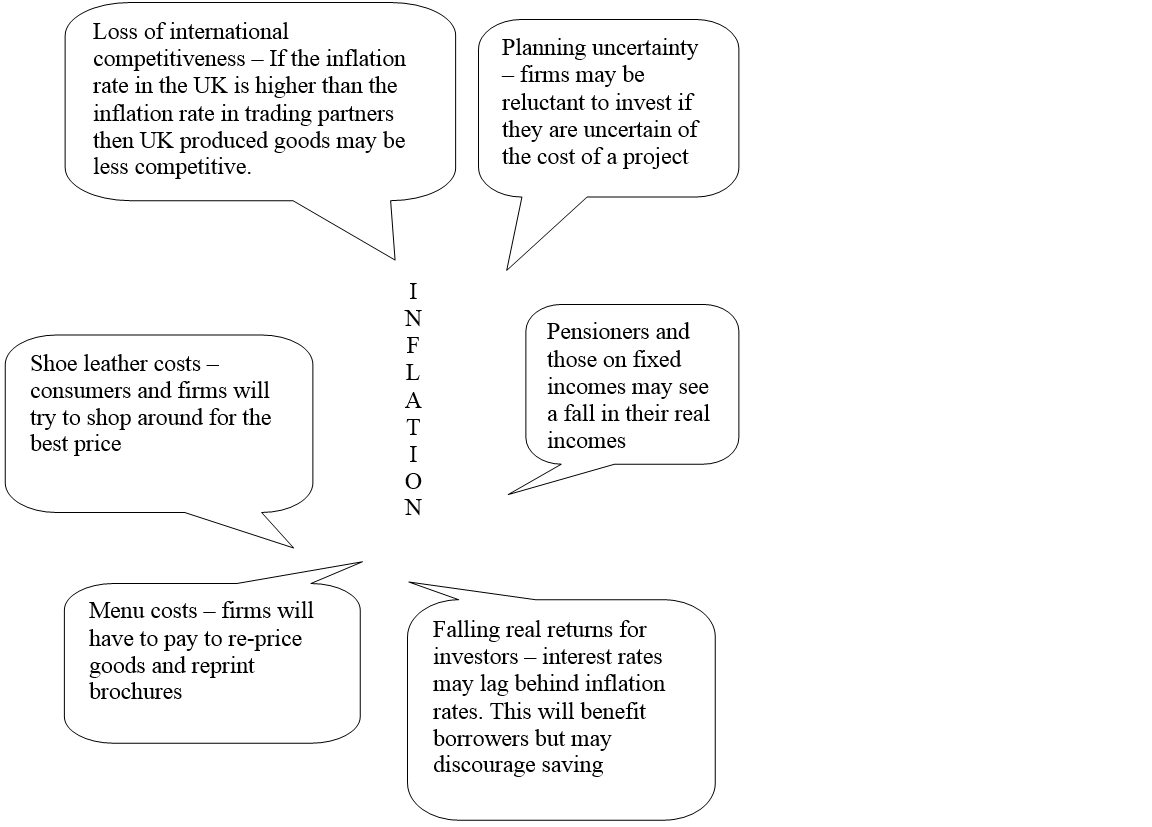Consequences of Inflation
16th November 2015
Most countries in the developed world experience inflation. Inflation in developed countries is typically around 2-3 per cent. This level of inflation is generally not felt to be a cause for concern. Higher rates of inflation may create winners and losers.
The impact of inflation
Inflation may also lead to a wage price spiral
Measures to Control Inflation
Various polices are available to the government in order to control inflation. The choice of policy will depend to a large extent on the cause of inflation.
During the 1980’s the Conservative government employed supply side polices in order to reduce the power of the trade unions. Legislation introduced during the period weakened the trade unions and made it harder for unions to take strike action.
Supply side polices could also be used to increase the number of job seekers by reducing benefits paid to the unemployed.
Aggregate demand could be reduced using fiscal policy. Taxes could be raised in order to reduce disposable income. Government may also choose to reduce government spending. Such a decision may have important trade-offs such as cuts in services and hardship for the poorest in society.
Prices and incomes policy
Attempts have been made to use a prices and income policy during the post war years. The strategy met with mixed success. Governments tried to restrict price increases and to limit pay settlements in order to reduce inflationary pressure.
There are a number of reasons why this approach has proved unsuccessful:
Trade Unions may use their bargaining power to obtain settlements breaking the limits set by the government.
A prices and incomes policy may distort the market economy, creating labour shortages because firms are unable to attract the labour they need.
Firms may pay benefits in kind (such as company cars).
Exchange rate policy
Governments could if they wished intervene in the foreign currency markets. In an effort to reduce inflationary pressure the government could buy up sterling in order to increase the value of sterling (reducing the relative price of imports whilst at the same time reducing the demand for exports.



0 Comments